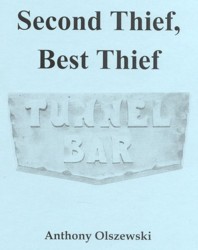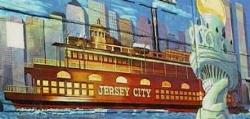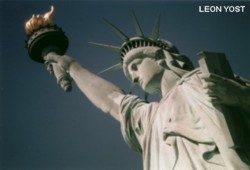 |  |  |
|
| ||
 |  |  |
 |  |  |
|
| ||
 |  |  |
|
|
|
Manning and John J. Kenny were severed from the trial at the outset. The first day's session was held in Trentonto get a jury untainted by publicity. The panel was sequestered and the trial shifted back to Newark the next day, where Stern opened, outlining each defendant's role in the conspiracy. Wolfe, Murphy, Manning and Flaherty he described as "bagmen"; Stapleton as the "bookkeeper"; Kropke, the "messenger"; Corrado, the "mail drop."
"And we will prove to you beyond a reasonable doubt that the leader . . . the mastermind of these conspiracies was the defendant John V. Kenny.
"These defendants," he continued, "knew that what they were doing was wrong ... they knew what they were doing was immoral and ... they knew that what they were doing was criminal."
Most of the defense attorneys responded with the usual pieties about "presumption of innocence" and "reasonable doubt." But John Noonan argued that Walter Wolfe had a "diminished responsibility" because of injuries suffered as a marine on Saipan in World War Two. He'd caught a shell fragment in his skull and was incapable, Noonan argued, of knowingly participating in the conspiracy.
"To Wally Wolfe," he said, "interstate commerce means taking the tubes over to New York to see a Knicks basketball game."
During the trial, Hudson County's Democrats reelected Wolfe as their chairman-a man supposedly unable to conform his conduct to the standards of society.
Corrado responded to Stern's opening by pleading guilty.
The first prosecution witnesses came from C. J. Langenfelder Sons, heavy-construction contractors in Baltimore who were interested in working on a $40-million reservoir project. The day before bids were to be submitted, Murphy called and asked to meet with a Langenfelder official. Project manager James P. Crawford flew to Newark Airport in the company plane. Murphy climbed aboard and, over cocktails, made his pitch-seven percent to be kicked back in cash. On a $40-million contract, it meant some $2.8 million. Stern says it's the largest shakedown attempt he's ever heard of. Langenfelder decided not to bid on the project.
Hugh Platt, Jr., followed, telling how his company, Ray Palmer Associates, had modified some sewage-treatment equipment for Jersey City. When payment came due, Murphy called Platt and explained "that in case of this amount of money, it is normal to take care of `the boys downtown.'"
He asked for a ten-percent kickback, and Platt agreed to
pay. "I had little choice if we were going to get paid." Ten percent came to exactly $2884.04.
"What did you do with the $2884.04?" Stern asked.
"I took it down to Mr. Murphy's office."
"All of it?"
"Took it all down."
"Including the four cents?"
"Took the four cents. He rejected it."
"He took the cash and returned the pennies to you, is that it?"
"Yes."
Herman Silverman, president of Sylvan Pools, told him his firm sold a dozen portable swimming pools to Jersey City's Department of Recreation to help defuse summer tensions in the ghettoes. On the bulk order, he gave the city a ten-percent discount.
On the way out of city hall, Silverman was called by Murphy into the men's room. "We want that ten percent," he said. "We want it in cash."
Silverman agreed to pay. "I felt that [if] that was the price for doing business in Jersey City, we were going to go along with it," he explained.
To raise the $6000 kickback, Silverman simply billed Jersey City for a more expensive model than the pools he shipped. Frank LaRosa, Sylvan Pools' general manager, delivered the cash to Murphy in a parking lot.
Aaron Groveman of Ardsley Construction Company told how his firm had been interested in doing rehabilitation work on Jersey City's Roosevelt Stadium. But a company agent had been denied specifications for the project. Groveman called Murphy to find out why.
"He said, `Jersey City is a political town, and we have certain rules and regulations here, and since your company has never done any business with us before, I want to inform you as to what these rules and regulations are.'
"So I asked him to let me know what they were.
"He said, `If you want to bid this job and you are the low bidder, you'll have to pay us ten thousand dollars.'
"I said, `I see.'
"He said, `Now that you know [what] the rules and regulations are, you can send over for the plans.'"
Ardsley got the award, and Groveman went to Murphy's office to sign the contract.
"Mr. Murphy told me that he was the bagman and that I would pay him the ten thousand during the course of the job and that I was to deal with him only and he was to deal with me only."
Groveman paid the $10,000 in four installments, the first in Murphy's office, the rest on street corners.

|
|
| 08/18/2012 11:10 PM |
|
Computer Repair Blog XP Local Area Connection stuck at Acquiring Network Address |
 Your Ancestors' Story |
 Bruce Springsteen's Jersey Shore Rock Haven! |

|
UrbanTimes.com |